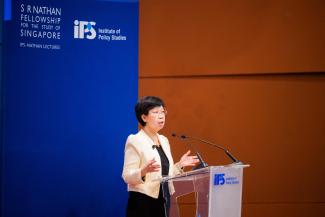
On 4 November 2024, Professor Lily Kong, the 15th SR Nathan Fellow for the Study of Singapore appointed by the Institute of Policy Studies (IPS), delivered her second lecture in the IPS-Nathan Lecture series, At the Crossroads: Universities for the 100-Year Life. Building on her first lecture on the historical evolution of universities, this lecture explored the urgent need for higher education to adapt to a world where individuals may live to 100 years or more.
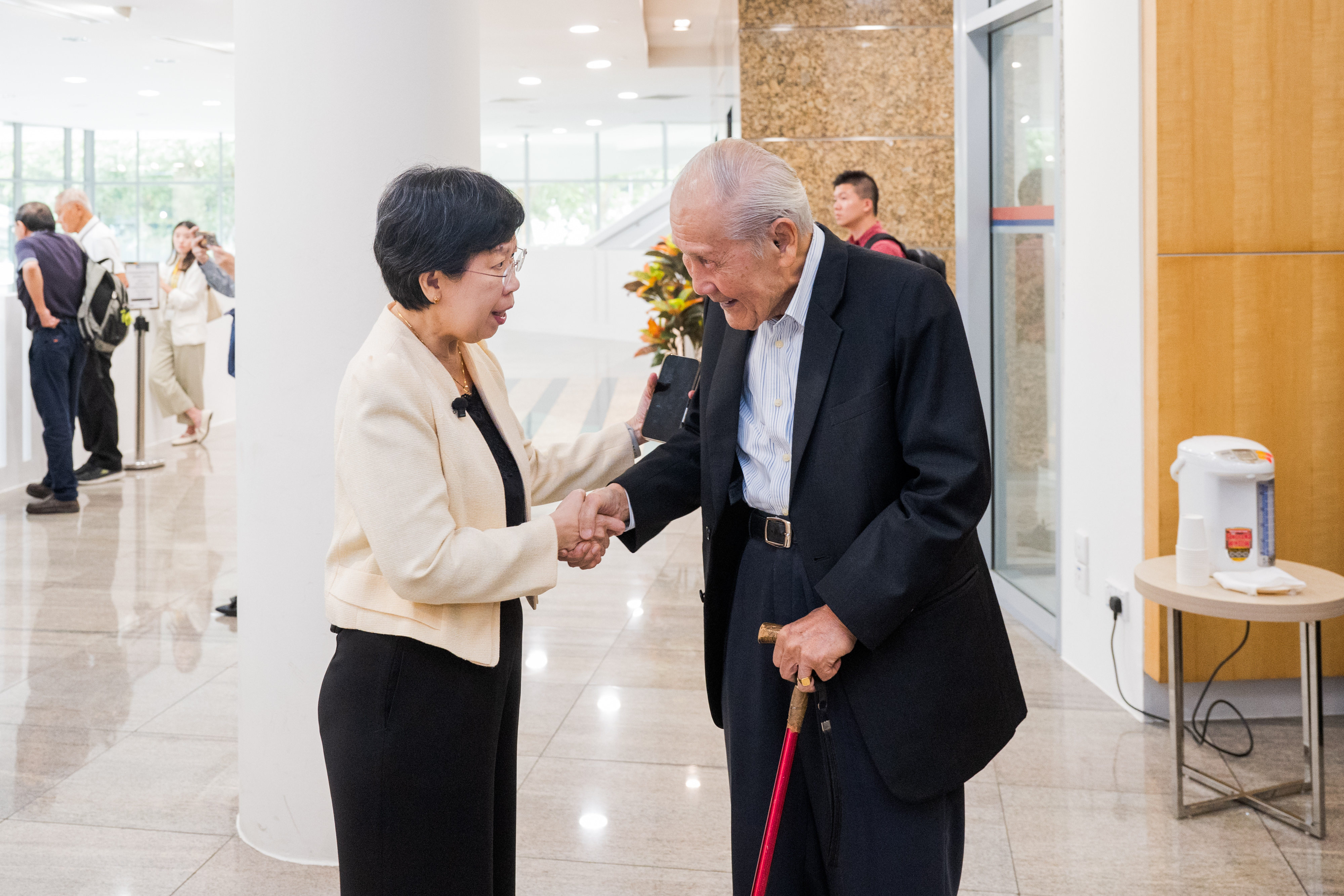
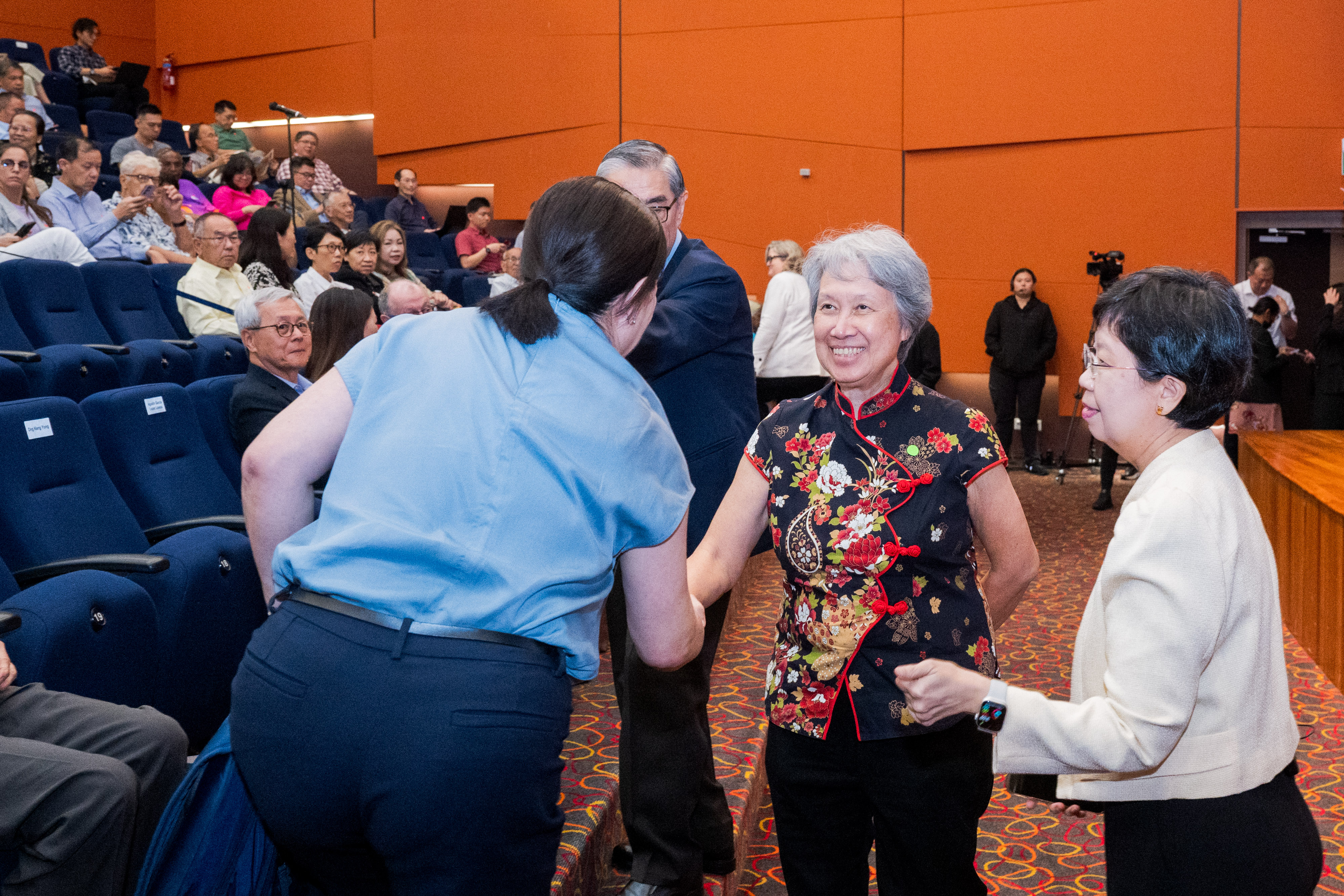
During the lecture, Prof Kong challenged her audience to rethink established views about higher education. Referencing The 100-Year Life by Lynda Gratton and Andrew Scott, she outlined a stark reality: if individuals live to 100 years old and aim to retire with half of their final salary by saving 10% of their income, they might only afford retirement well into their 80s. This daunting prospect signals the necessity of reimagining the traditional three-stage model of education, work, and retirement to support lifelong learning and flexibility.
Four Dimensions of Disruptive Thinking
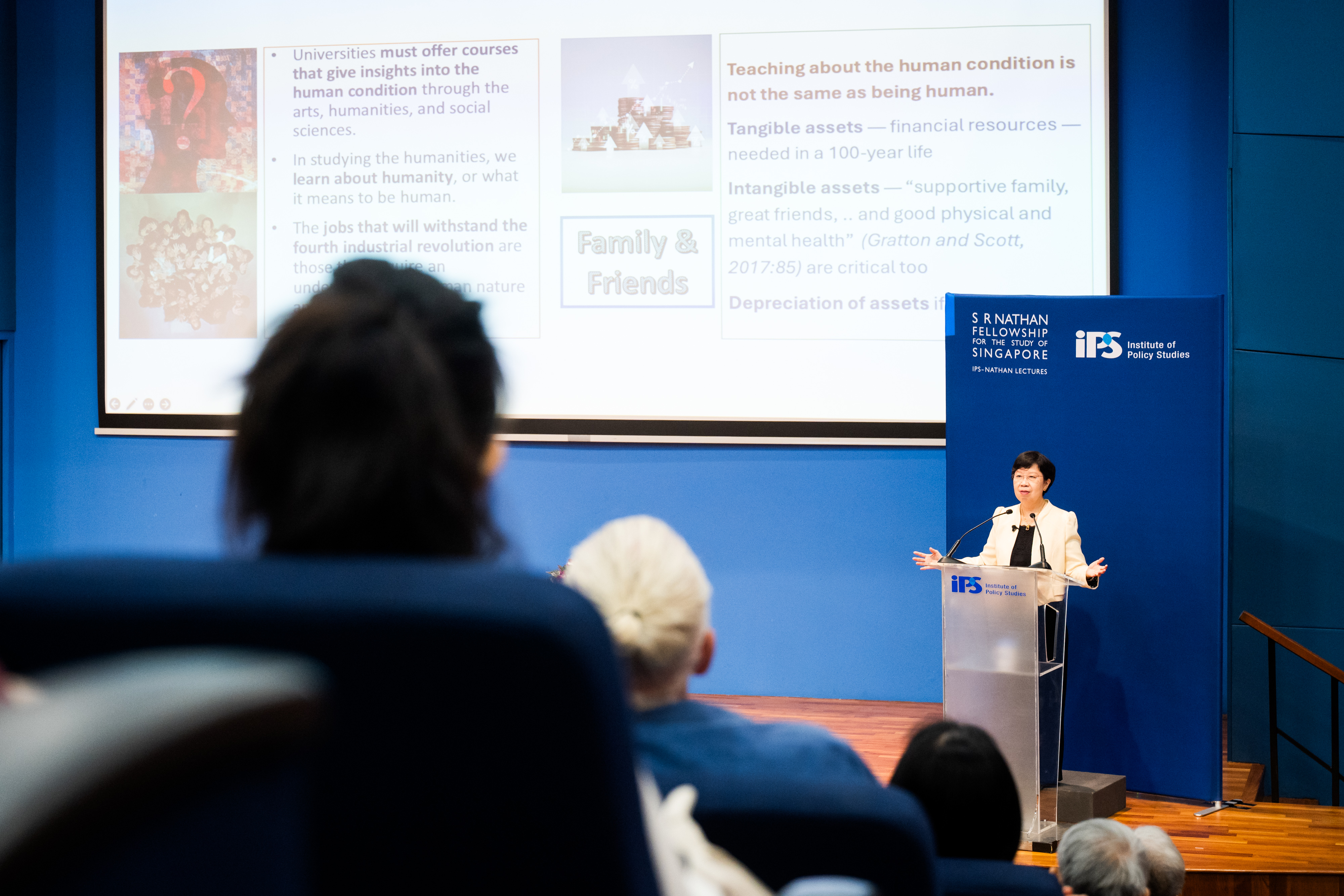
Prof Kong identified four key areas where disruptive thinking can help universities remain relevant and flourish well into the future, as they prepare individuals for longer, more dynamic life stages. These are:
Beyond Cognitive Skills
Historically, universities have emphasised cognitive skills, but Prof Kong stressed the importance of fostering a broad spectrum of abilities. Referencing Howard Gardner's theory of multiple intelligences, she argued for a holistic educational approach that nurtures diverse talents and capacities in students.
Accentuation of Humanity
In an era increasingly dominated by big data and artificial intelligence, Prof Kong highlighted the necessity of nurturing students' human qualities and empathy. She emphasised how universities should help students manage vulnerabilities and shore up their resilience for times of uncertainty.
Interdisciplinary Depth
Traditional academic disciplines, rooted in the 19th and 20th centuries, may no longer suffice in a world requiring integrated solutions to complex global challenges. Prof Kong advocated for a balance between disciplinary depth and interdisciplinary insight, fostering knowledge that transcends silos and tackles real-world problems effectively.
Lifelong Learning
No longer confined to early adulthood, higher education should embrace lifelong learning, encouraging individuals to engage with universities throughout their lives. Prof Kong urged universities to recognise that learning occurs not only in academia but also through practice, play, and social interaction. To be effective, universities must transform into lifelong partners that engage learners across all life stages, beyond the traditional ages of 18 to 25.
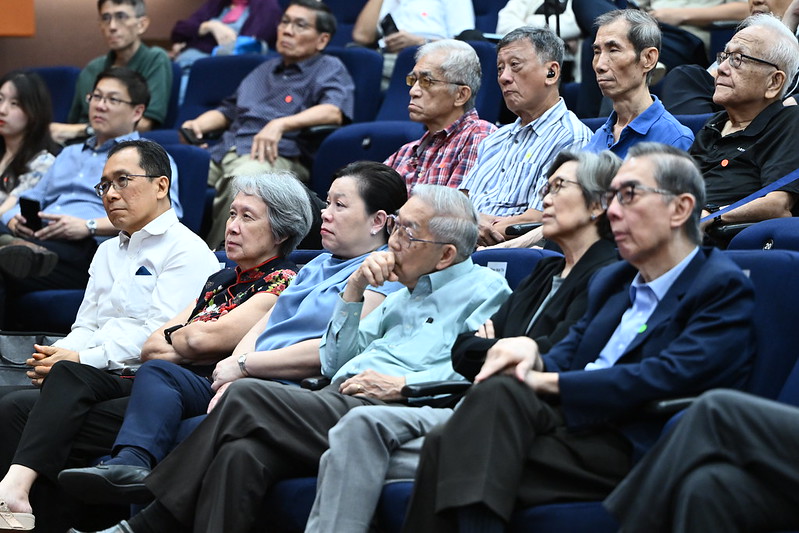
Engaging Dialogue and Reflections
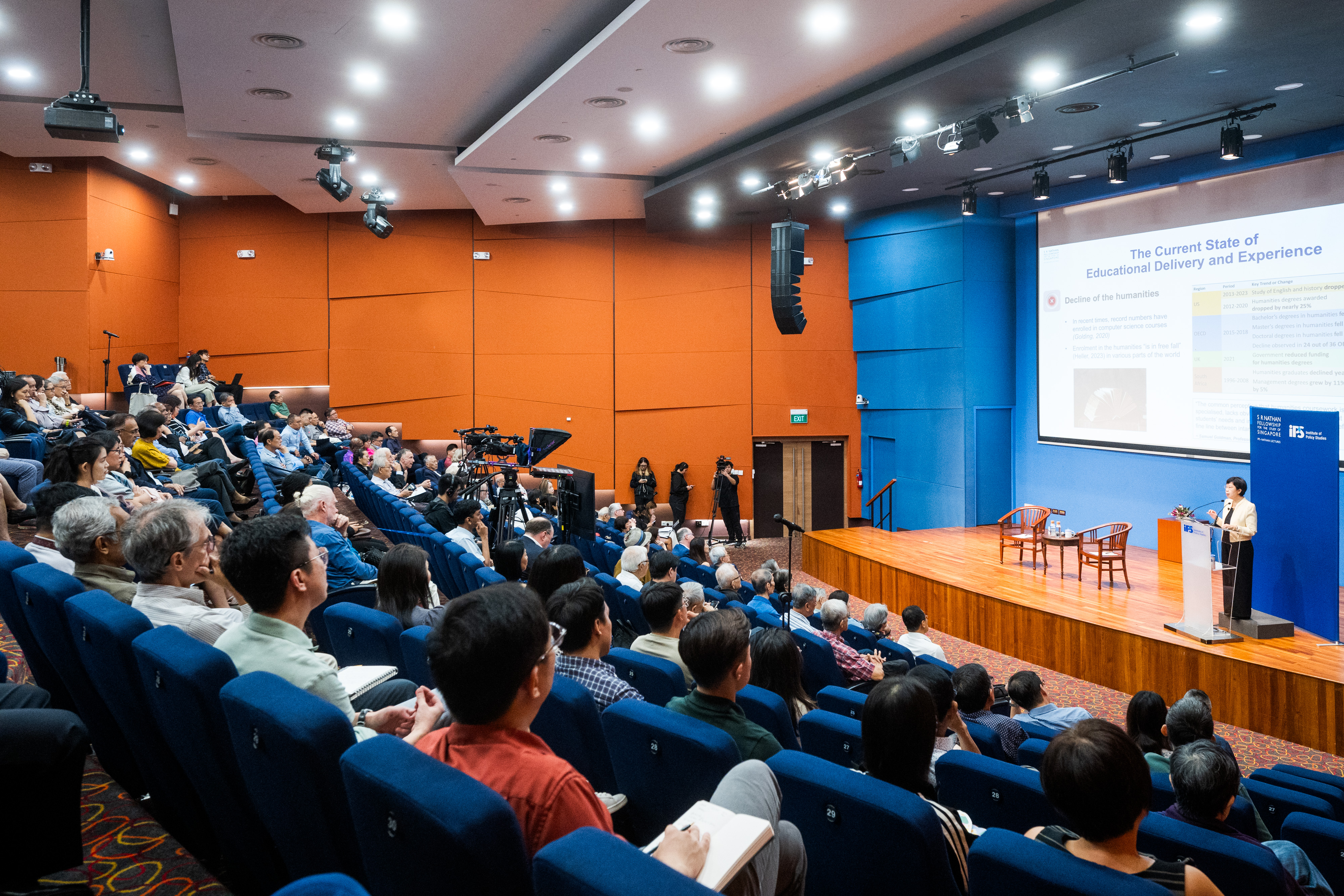
The lecture drew more than 230 participants, both in-person and online, who engaged with Prof Kong’s thought-provoking vision. During the Q&A session moderated by Professor Chua Kee Chaing, President of the Singapore Institute of Technology, discussions focused on the importance of flexible academic structures that align with extended life stages. Prof Kong highlighted the example of how SMU’s College of Integrative Studies champions an integrationist interdisciplinary model that prepares students to tackle multifaceted challenges. She also explained how this was not a one-size-fits all model but rather, a pedagogical approach suited to students who embody attitudes of adaptability, reflexiveness, and self-direction.
A concept outlined by Prof Kong during her lecture, that of “galumphing” – drawn from Alice in Wonderland and used by anthropologists to describe exuberant, unstructured play – resonated with the audience. Participants shared how such “galumphing” has enriched their personal learning journeys. Prof Kong re-iterated that these indeed were not frivolous pursuits. Rather, such mindsets bring possibilities for creativity and personal growth at different life stages.
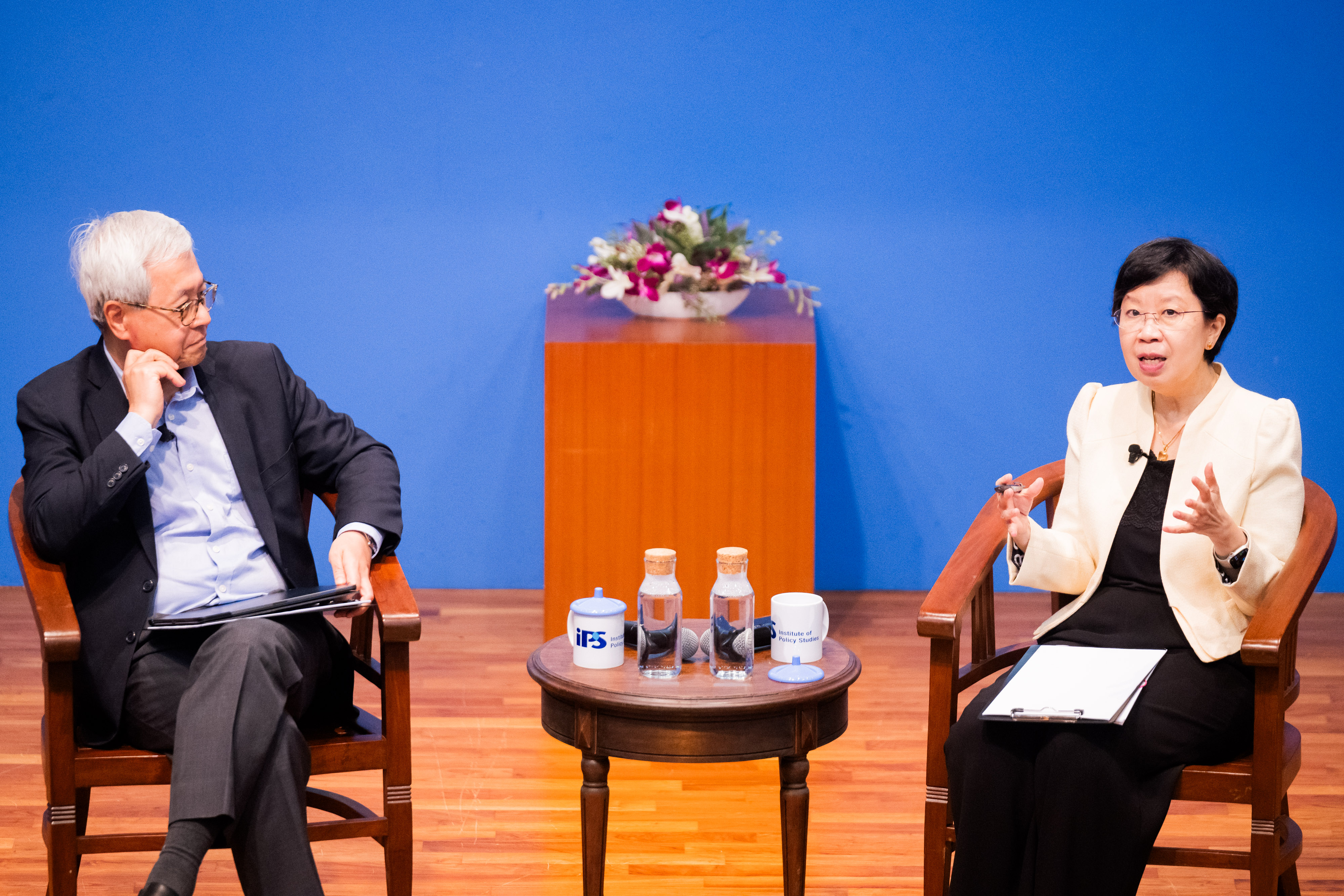
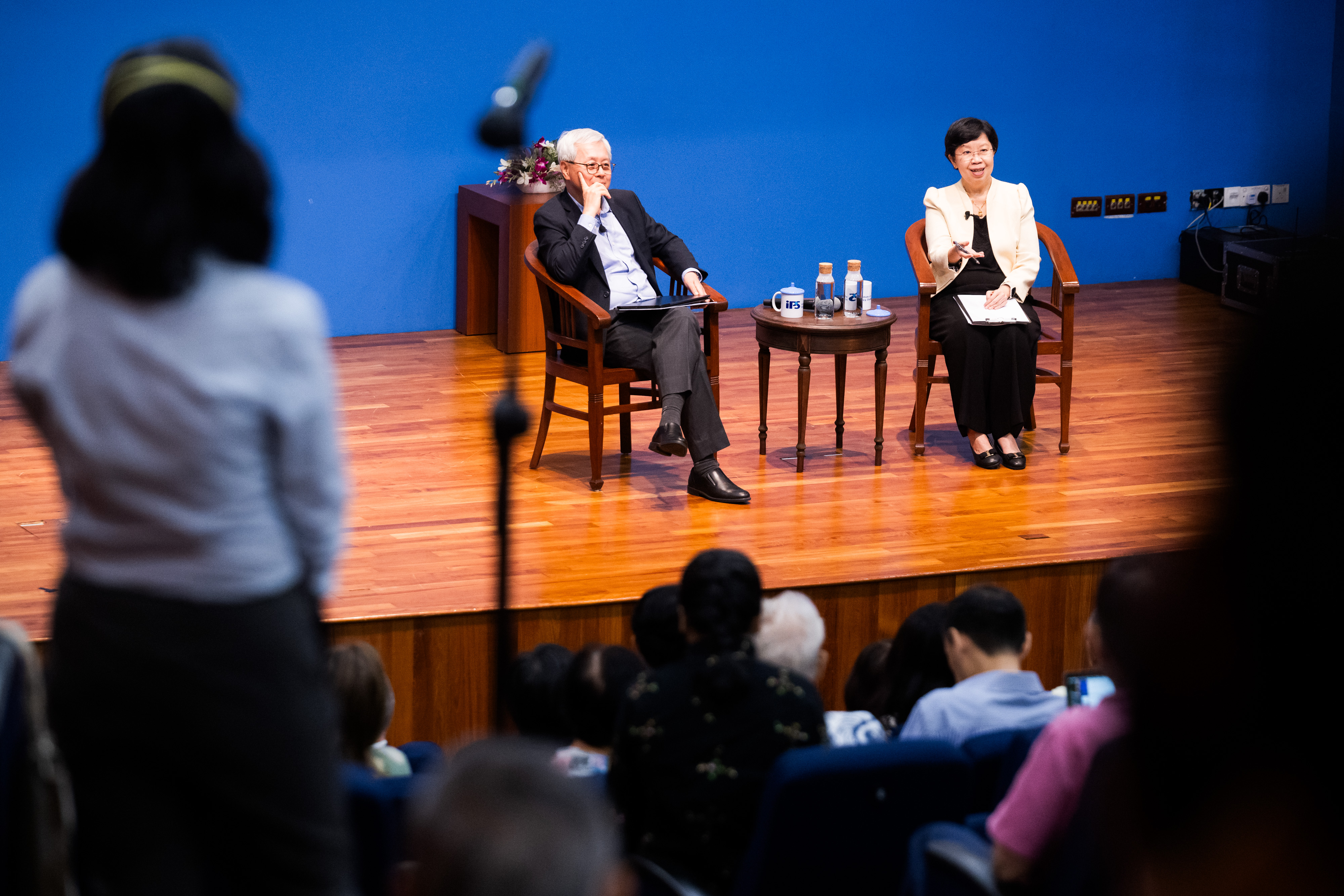
Looking Ahead
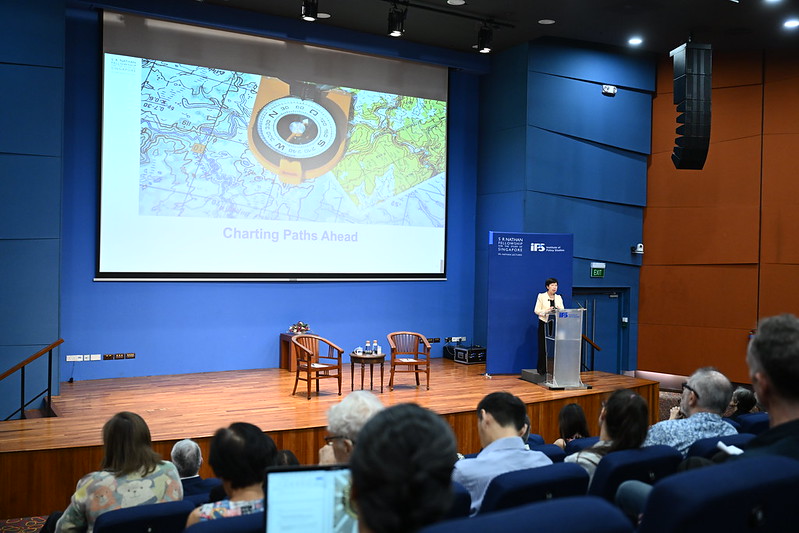
As the lecture concluded, Prof Kong opined that preparing for a 100-year life requires moving beyond rigid, linear paths in education and careers. An intentional, collaborative, whole-of-society approach—one that involves individuals, employers, governments, and universities—can foster an adaptable, resilient framework for lifelong learning.

Professor Kong’s final lecture on 27 November 2024 promises to deepen this conversation with discussions on how research can address pressing societal challenges and future needs.